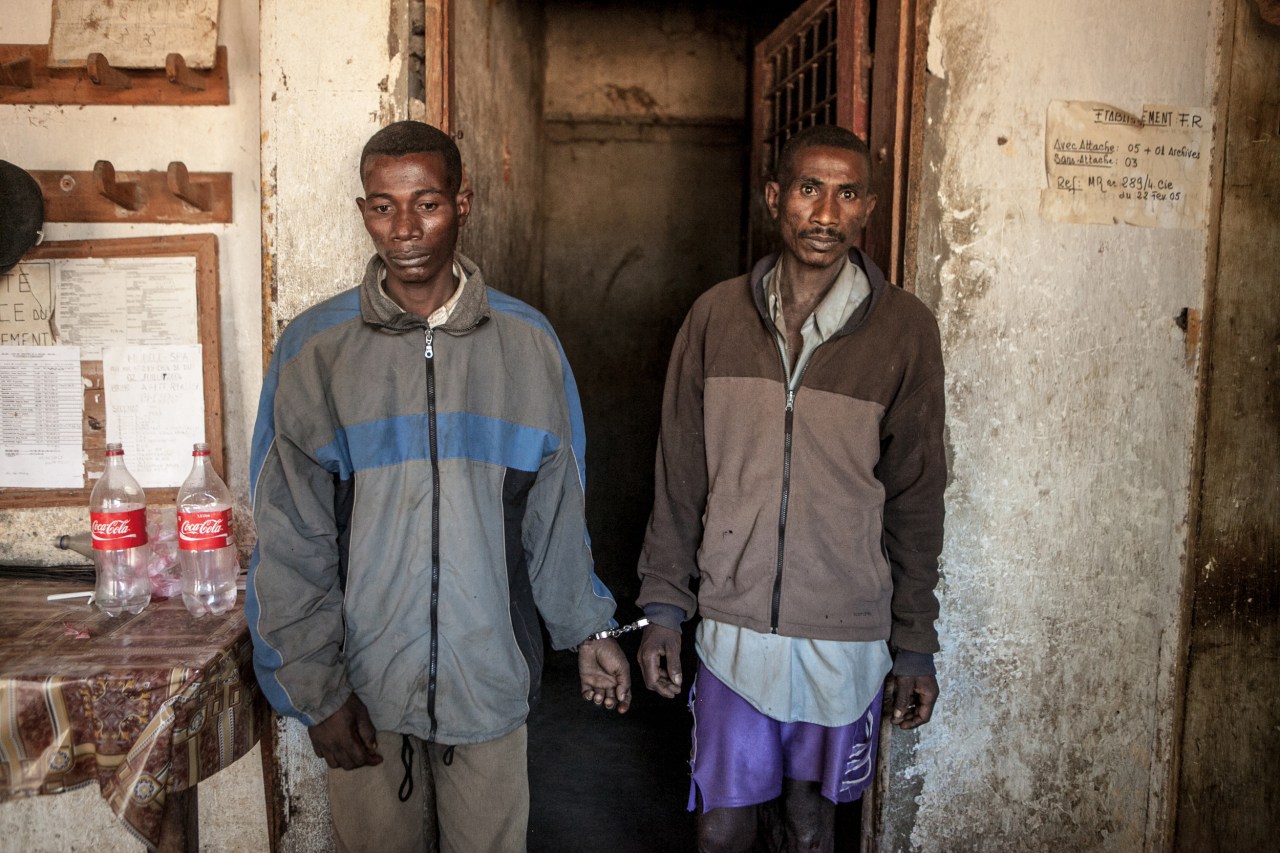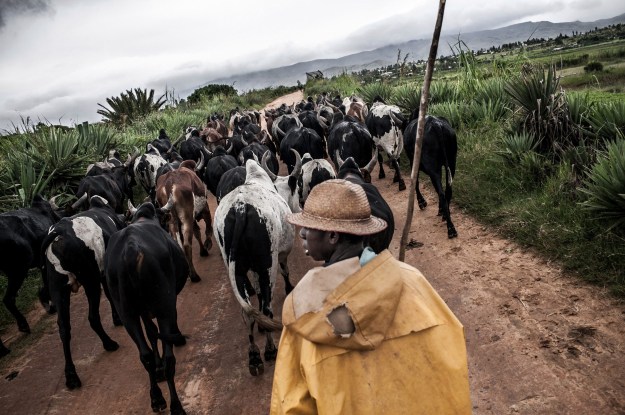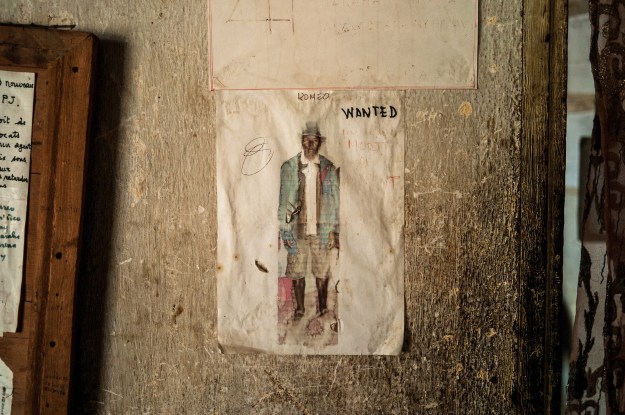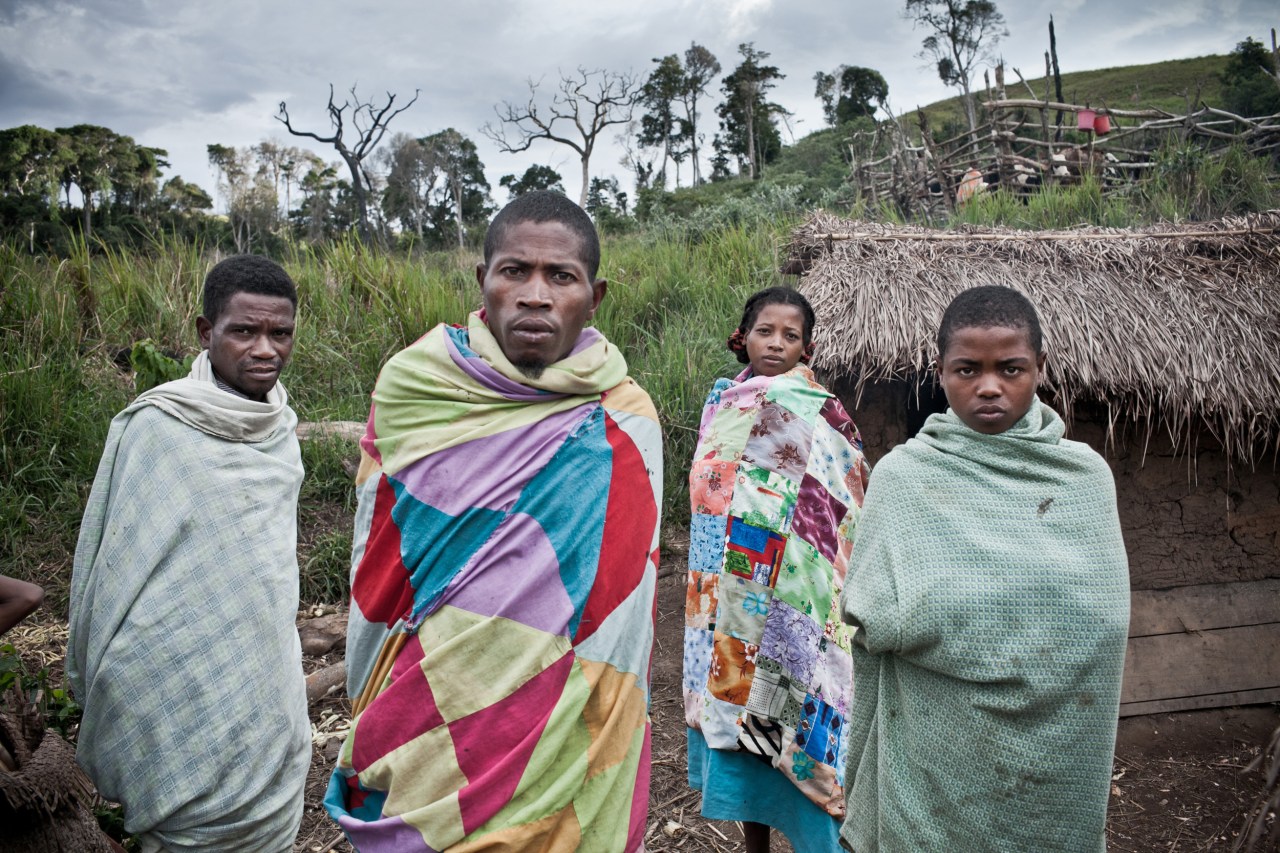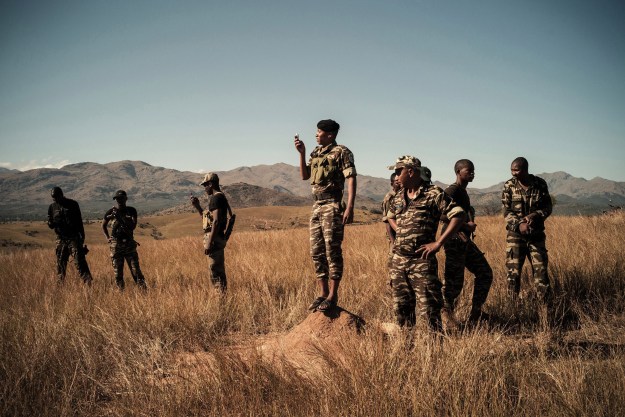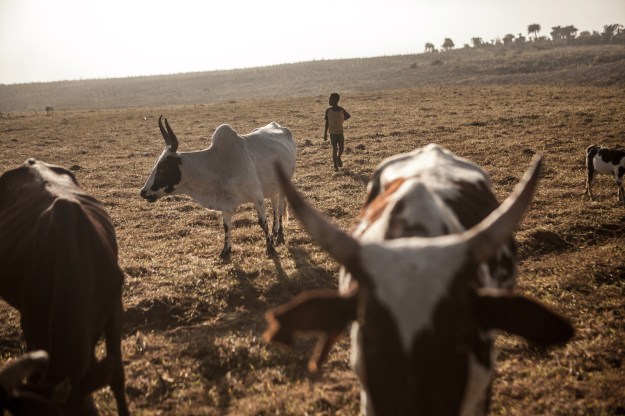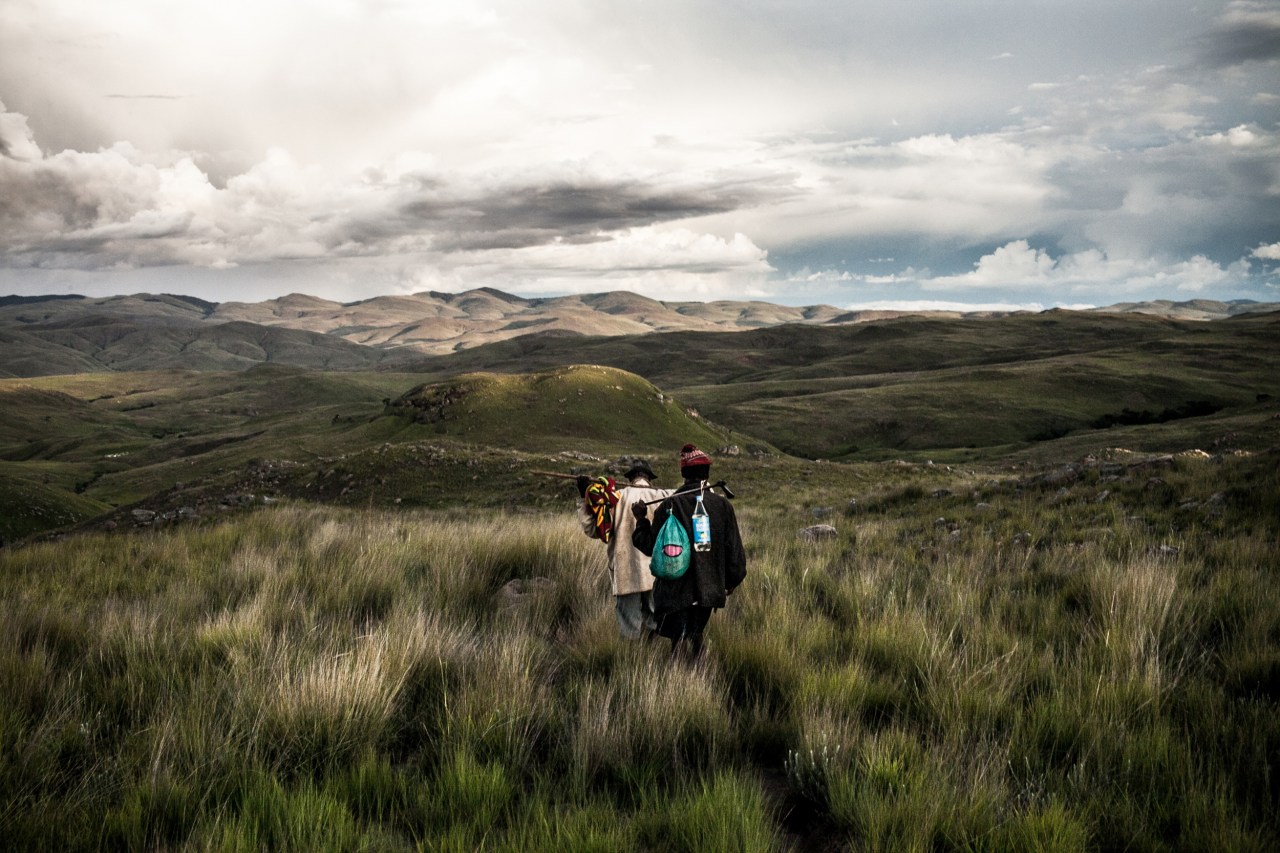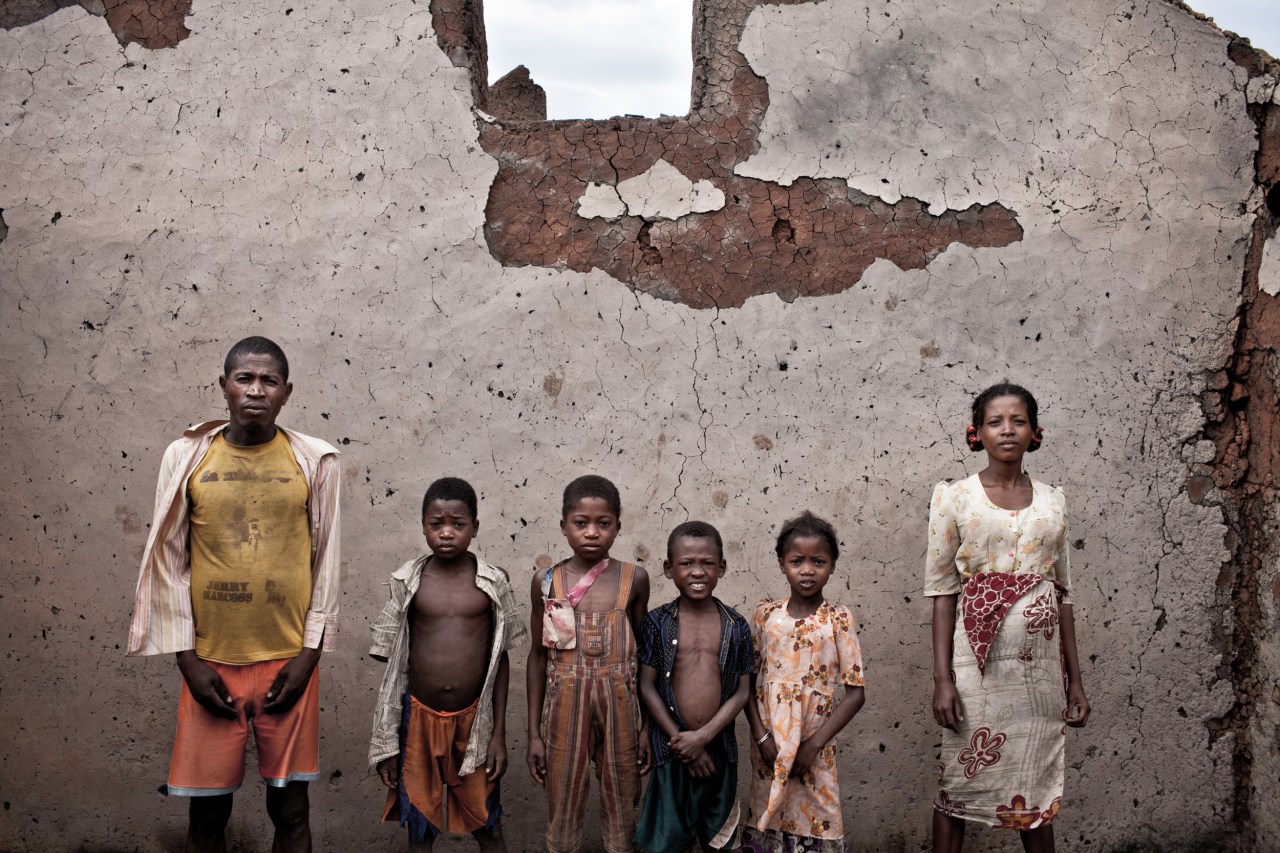The theft of zebus—large humped cattle—by youth commonly known as “dahalo” or “malaso” is a daily occurrence for populations living in the southern regions of Madagascar. This ancestral tradition is a way for young men to prove their virility and has, until recently, been considered a petty crime. Zebus represent economic wealth in this country where monthly income can hover under $40, while a cow can be sold for as much as $120. But the stealing of zebus became a national issue once the dahalo started organizing in groups. Armed with assault rifles and military training, they do not hesitate to kill.
In 2012, a dahalo named Remenabila with 200 to 300 young men under his command stole thousands of zebus, killing 12 policemen in Labohazo Village in the process. This affair triggered a large military operation named “Tandroka,” designed to reestablish order and capture Remenabila, dead or alive. International observers were quick to condemn the violent methods towards the rural populations, including the razing of entire villages. In 2013, the military announced that Remenabila had been killed, although local journalists have noted this hasn’t been independently confirmed, and that Remenabila is as much myth as man.
Since then, the practice of stealing zebus has not stopped. Rumors of a successor to Remenabila continue to circulate. Efforts to curtail the ongoing theft that continues to plague the country—particularly in the south—include a new military operation that will utilize drones.
